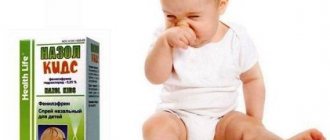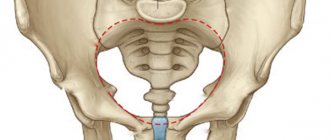Cold: signs
The signs of illness in an expectant mother are not particularly different from the illness in a non-pregnant mother. You may also experience a cough or runny nose. The most famous signs of a cold at 38 weeks of pregnancy:
- Sore throat.
- Cough.
- Headache.
Herpes can also form. In addition, snot, vomiting and diarrhea may appear due to a cold at 38 weeks of pregnancy.
If a pregnant woman feels aches in her body and joints, and also has a high fever, then most likely it is the flu. This disease is characterized by such severe symptoms. The virus, entering the body, begins to spread quickly and can cause intoxication. The disease should be treated immediately.
Possible complications of a cold
All expectant mothers, eagerly awaiting the birth of their baby, are interested in what exactly is the danger of a cold in late pregnancy. Specialists list the most dangerous processes, the development of which can be triggered by a cold:
- fetal hypoxia;
- fetoplacental insufficiency;
- premature birth.
Very often, when a cold occurs before the birth itself, the child is usually born lethargic, weak with pale skin, which is the result of intrauterine hypoxia. This process most often occurs after a runny nose with copious discharge, which causes insufficient oxygen to enter the woman’s body.
Prolonged nasal congestion in a pregnant woman with a cold in the 9th month of pregnancy also affects the baby in exactly the same way. In most cases, such children require treatment in a hospital immediately after birth.
There is also a danger for the expectant mother, especially if she plans to continue breastfeeding her baby. As you know, a month before the expected birth, a woman’s body begins to actively produce hormones responsible for the lactation process. That is why the development of a cold at 35 weeks of pregnancy is considered very undesirable, because a previous illness can cause a lack of breast milk or its production in insufficient quantities for the newborn. Placental hormones are responsible for lactation, and, as is known, in the event of a viral infection entering the female body, the placenta bears a large load, because it performs a protective function.
A cold in the third trimester of pregnancy can cause premature aging of the placenta
The development of a cold at 37 weeks of pregnancy poses virtually no danger to the mother; it can only cause a deterioration in the pregnant woman’s well-being, which is caused by nasal congestion or runny nose, cough, fever and sore throat. However, this period is more dangerous for the child than for his mother, since, starting from the 36th week of pregnancy, a cold can weaken the already weak placenta, which loses its previous protective properties, which is caused by its aging. Because of this, the placenta may allow all the viruses present in the pregnant woman’s body to reach the baby, but do not panic, because this does not mean that the baby will get sick. But during this period, if possible, the use of drugs of synthetic origin should be excluded. All medications and toxins produced by pathogenic microorganisms tend to penetrate a weakened placenta, which can have very serious irreversible consequences.
Water contamination
Embryo in amniotic fluid
In addition to these complications, which often arise as a result of a cold, infection of the amniotic fluid can occur. Unfortunately, pathogenic microorganisms tend to enter the amniotic fluid, which the baby can drink. To avoid complications caused by the penetration of bacteria into the amniotic fluid, obstetricians-gynecologists strongly recommend that women who have had a cold in the 3rd trimester of pregnancy undergo clinical blood and urine tests. By studying the results of these tests, the specialist can learn about the condition of the child and mother, as well as the placenta. It is also recommended that after a cold that occurs at the end of pregnancy, an ultrasound examination is performed, which is considered the most accurate diagnostic method.
It is important to treat colds in the later months of pregnancy because even if the disease does not have an adverse effect on the baby, immediately after birth he is isolated from his mother, since she can infect him with a viral infection. This is very bad for the child, since during this period he greatly needs the warmth and care of his mother, whose heartbeat he felt for all 9 months. Also, weaning a baby from a woman can cause a loss of breast milk, after which it is almost impossible to restore lactation.
Danger of cough for mother and fetus
Coughing is a reflex reaction of the body that occurs when it is necessary to clear the airways of foreign objects. It could be sputum, fine dust, some kind of allergen. In the process of one cough, dozens of muscles throughout the body take part - these are the muscles that support the respiratory tract and the abdominal muscles.
For a pregnant woman’s body, a strong cough is a colossal burden. Even more so for the fetus. Cough is especially dangerous in the first trimester of pregnancy. At this stage, the formation and strengthening of the fetus on the walls of the uterus occurs.
And the danger here is double - on the one hand, the cough is caused by the ingestion of an infectious agent or allergen, which in itself is harmful to the baby’s body. On the other hand, such a powerful muscle contraction necessarily affects the position, well-being and formation of the fetus in the mother’s body.
It is important to understand how and with what to treat cough during pregnancy in order to prevent complications.
A strong and prolonged cough at different stages of pregnancy can provoke certain syndromes in the fetus, and subsequently in the child:
- Fetal hypoxia is a lack of oxygen supplied to the fetus through the mother’s blood. As a result, circulatory disorders occur and the child’s developing organs do not receive a sufficient amount of oxygenated blood.
- Bleeding - it happens that a pregnant woman has a low-lying placenta and contractions of the abdominal wall muscles that occur when coughing provoke increased vascular tone, the vessels can burst and severe uterine bleeding can develop, which is dangerous for the fact of pregnancy itself in the early stages.
- A reflex increase in uterine tone, resulting in a miscarriage. This complication threatens a pregnant woman in the first trimester. When the fetus is poorly attached to the wall of the uterus, and coughing attacks are long and severe, over time the deep muscles of the pelvic organs become involved in the reflex cough. Strong contractions of the uterus can provoke a miscarriage.
As you can see, even the most common cough can pose a serious danger to both the health of the mother and the life of the unborn baby. Therefore, at the first signs of a respiratory disease, a sore throat, a slight cough or runny nose, a pregnant woman is obliged to consult a doctor and, together with him, very carefully select methods for treating cough during pregnancy. It is important to remember that her health no longer belongs only to her.
At 38 weeks of pregnancy, the baby is well protected by the placenta, which does not allow harmful and dangerous substances to penetrate. It also responds to the baby’s immunity. All organs and functions of the fetus are well developed, but you should not relax, you need to understand that a cold is dangerous.
In the last weeks of pregnancy, it is more difficult for a woman to endure illnesses, because the child puts pressure on some internal organs. Because of this, it becomes increasingly difficult for the expectant mother to breathe and move. Also, by week 38, the placenta begins to age and no longer performs its protective function so well.
To avoid any consequences, the doctor will prescribe the necessary antipyretic drugs. But if the body temperature is below 37.5, then there is no need to bring it down, this is normal. Additionally, you can read the recommendations for pregnant women on the instructions for the medications.
Orz and ARVI during pregnancy. what is dangerous and how to treat
Of course, every prudent expectant mother tries to take care during pregnancy, but nevertheless, many catch a cold - after all, the immunity of pregnant women is very significantly reduced. Therefore, even those factors that we are accustomed to not noticing can have a negative impact.
What are acute respiratory infections and acute respiratory viral infections?
There is no diagnosis of a cold. The doctor writes either ARI or ARVI. What is it? ARI is an acute respiratory disease caused by both bacteria and viruses. ARVI is an acute respiratory viral infection. The familiar flu refers specifically to ARVI.
The main symptoms of acute respiratory infections are general intoxication of the body and damage to the respiratory tract.
Intoxication of the body is manifested by increased temperature, weakness, muscle pain, and aching joints.
Damage to the respiratory tract - runny nose, sore and sore throat, cough, change in voice.
The nature of the manifestation of these symptoms, for example, the color of sputum, the nature of the cough, etc., depend on the causative agent of the disease.
What are the dangers of acute respiratory infections during pregnancy?
The greatest danger is caused by viral infections (ARVI). The degree of danger depends on the stage of pregnancy.
The most dangerous period is the first trimester . At this stage, the baby is not yet protected by anything and the virus can cause developmental defects, including those incompatible with life and cause miscarriage.
In the second and third trimester, during normal pregnancy, the baby is reliably protected by the placenta, which is an insurmountable barrier to most infections.
But with accompanying complications of pregnancy leading to disruption of placental metabolism (for example, gestosis, threat of miscarriage, exacerbation of various chronic diseases), serious consequences can occur in the second and third trimester.
So,
until the middle of the second trimester , a viral infection can disrupt the formation of organs of the central nervous system - the brain and spinal cord, as well as other systems.
From the second trimester, intrauterine infection of the fetus is possible with the development of an infectious and inflammatory process in various organs, for example, meningitis, encephalitis, pneumonia, etc. Malnutrition of the fetus can also be observed and, as a result, a lag in its physical development.
If the mother caught a cold shortly before giving birth , then at birth the baby may show signs of hypoxia: the baby is lethargic, pale, the cry is weak, and there may be breathing problems. Then the child requires urgent treatment, and may even have to stay in the intensive care unit. In addition, after suffering from hypoxia, the child is more susceptible to birth trauma.
But there is no need to panic if you catch an acute respiratory infection or acute respiratory viral infection. According to statistics, 80% of women experience a cold in one form or another, most of them at the beginning of pregnancy, but for the majority, the pregnancy ends successfully, and, despite the illnesses they have suffered, they give birth to healthy babies.
How to treat acute respiratory infections?
First, it’s worth listing what you should never do during pregnancy.
No antibiotics, dietary supplements! Also forget about hot baths, steam rooms, foot baths. Never use aspirin or medications containing it (for example, Coldrex or Efferalgan).
To reduce the temperature, do not use rubbing alcohol. Wool socks are also not a good idea.
If you have a runny nose, you cannot self-prescribe and use medications containing vasoconstrictor components, such as SANORIN, DLYANOS, NAZIVIN, GALAZOLIN, OT-RIVIN, NAPHTHYZIN, etc. They can only be prescribed by a doctor and only if there are strict indications.
What can be used to treat acute respiratory infections during pregnancy?
To relieve fever, you can use paracetamol and drugs based on it. You can also wipe yourself with water at room temperature; in extreme cases, to quickly lower the temperature, you can add a little vinegar essence to the water, but just a little.
It is advisable to bring down the temperature with medications only if it has risen above 38 degrees. A temperature of up to 38 degrees indicates that the body is fighting infection - after all, this is a protective reaction of the body.
It is at elevated temperatures that the production of interferon increases, a substance necessary to fight infectious agents, in particular viruses.
In addition, an increase in body temperature causes the death of a number of pathogens.
But you should not expose the fetus to high temperatures for more than two days - elevated temperatures can lead to disruption of metabolic processes.
For a runny nose and sore throat, you should use folk remedies. Suitable rinses and inhalations based on eucalyptus tincture, sage decoction, soda, calendula tincture, MALAVIT.
For inhalation, you need to bring the water to a boil, bend over at a distance of 25-30 cm from the surface of the water and breathe through your mouth or nose, depending on what you are treating - a cough or a runny nose. Inhalations are carried out every 2-3 hours.
If you have a runny nose, you can clear your nose with AQUA-MARISA - 1-2 sprays into each nostril 3-6 times a day. You can use homeopathic spray EUPHORBIUM COMPOSITES, EVA-MENOL ointment, oxalic ointment, PINOSOL ointment and drops.
For a sore throat, you can use aerosols STOPANGIN, GEXORAL. From the second trimester - KAMETON. You can also use medicinal lozenges for resorption with essential oils, for example, NEO-ANGIN and DOCTOR THEIS ANGI-SEPT, which have weak antiseptic and anti-inflammatory properties.
Nutrition during illness should be balanced - do not forget about vitamin complexes, fermented milk products, low-fat broths and soups. Appetite usually decreases when sick, but care must be taken to ensure that the baby receives a sufficient amount of nutrients.
You need to drink more water - at least 2 liters per day. Water very well removes toxic substances from the body that poison it.
It is best to drink drinks such as weak tea with lemon, rosehip infusion, cranberry or lingonberry juice, dried fruit compote, alkaline mineral water. At the same time, you need to ensure that approximately the same amount of water is removed from the body per day as you drank.
But if you have severe edema or gestosis, then to remove toxins from the body you will have to go to the hospital - there, under the supervision of a doctor, you will undergo detoxification. You cannot prescribe diuretics yourself!
Prevention
Of course, it is better not to get sick than to be treated. How to protect yourself from colds?
1. watch your diet. Don't forget to take vitamin complexes.
2. dress according to the season - you should not be cold or sweaty.
3. avoid being in a confined space with a large number of people (transport, shops, etc.)
4. before visiting public places, lubricate your nose with oxaline ointment.
5. Ventilate the room often, and leave the room yourself.
6. Carry out frequent wet cleaning, humidify the air in all possible ways.
7. You can place plates with chopped garlic and onions around the apartment.
8. If one of your household members is sick, isolate him and wear a gauze bandage.
We hope that with our advice you will be able to avoid acute respiratory infections or acute respiratory viral infections! And if you do get sick, you will get over the disease as easily as possible!
Source: https://lopotun.ru/article/orz-i-orvi-pri-beremennosti-chem-opasno-i-kak-lechit
The danger of a cold at 38 weeks of pregnancy. Reviews and opinions of girls
An expectant mother always worries when she gets sick. After all, a viral infection enters the body, which is not dangerous for the child. But where does the excitement come from then? Why is it dangerous to get sick at this stage of pregnancy?
You still need to watch out for colds at 38 weeks of pregnancy. With a fever, the fetus may develop defects. This does not apply to a temperature of 37.2, this may be acceptable. The placenta no longer performs its function so well. Therefore, the barrier collapses, and unnecessary substances can reach the child. It all depends on the temperature and the complexity of the disease.
Colds during pregnancy - 3rd trimester
The final stage of pregnancy has arrived. It can be considered the easiest and most difficult at the same time. On the one hand, many fears are already behind us, including the fear of miscarriage. The pregnant woman is already accustomed to her condition, to her big belly, to her mood swings. On the other hand, she is frightened by the unknown and childbirth. She worries that everything will be fine with her child. Also, many people are afraid of catching a cold during the 3rd trimester of pregnancy, especially if it occurs during the cold season.
What exactly is the danger of a cold in late pregnancy? It is an undeniable fact that a cold at the end of pregnancy is much less dangerous than at the beginning. The fact that if premature birth occurs after 28 weeks, then with the help of advanced technologies the child can be saved, reassures many expectant mothers. And if a cold at 31-32 weeks of pregnancy provokes premature birth, then the baby has a chance to survive on its own. But all this does not mean at all that a cold during the 3rd trimester of pregnancy is not dangerous. And not only for the baby, but also for you.
For example, a cold at 34 weeks of pregnancy can affect your hormonal levels, which begin to activate the production of breast milk during this week. Placental hormones are responsible for this, and the placenta is under a very heavy load during illness.
As you know, by the 37th week the fetus is already fully formed and ready for life outside the mother’s tummy. However, a cold at 38-39 weeks of pregnancy is the least dangerous for the mother, but very dangerous for the baby. This is due, first of all, to the deterioration of the placenta. In the last stages of pregnancy, the placenta ages, and colds can “penetrate” through the placenta to the baby. This does not mean that the child can also get sick. No. But it may contain medications taken by the mother for colds, toxins produced by bacteria that cause the disease, and other substances that are not very useful for the little person.
A cold in the third trimester of pregnancy is also dangerous due to water contamination. Many bacteria, unfortunately, can penetrate the amniotic fluid, and the child, in turn, can very often drink it. Thus, with a cold at 8-9 months of pregnancy, bacteria can penetrate directly into the child’s body, which is very dangerous. Therefore, gynecologists urgently require pregnant women to take clinical blood and urine tests every two weeks. Based on the results of these tests, as well as an ultrasound examination, the doctor can find out about the condition of the mother, the child, and the placenta. These tests must be taken, even if you did not have a cold in the last month of pregnancy. At any stage, these tests, simple at first glance, can help you learn a lot about the state of health of a pregnant woman and her fetus.
What else can be dangerous about a cold in the last month of pregnancy? Many pregnant women think about this, but not everyone can imagine the entire possible scenario for the development of events. So what can happen if a woman catches a cold in the last stages of pregnancy? Let's imagine one of the bad scenarios.
So, the pregnant woman caught a very bad cold. Her body is weakened and cannot fully fight the disease. This provokes premature birth. The baby is born healthy, but he is not allowed to see his mother because she is sick. But he so needs her warmth and care. And most importantly, mother's milk! And the mother can neither hug her baby, nor kiss her, nor put her to her breast. The latter, by the way, can be fraught with loss of milk from the mother.
Therefore, despite all the seeming harmlessness of a cold during pregnancy in the 3rd trimester, remember that this is not so. And try to take all measures to stay healthy both for yourself and for the sake of your baby.
WomanAdvice.ru>
Consequences
What can be the consequences of a cold at 38 weeks of pregnancy? If a high temperature rises, then the fetus may have disorders of all body systems. At earlier stages, the placenta is disrupted, and the child stops receiving the required amount of nutrients and oxygen.
Another danger with a severe cold can be premature birth and placental abruption. So, at the slightest suspicion of a cold, you need to go to the hospital, as there may be fetal hypoxia. And in addition to the virus, a pregnant woman may also develop a bacterial infection. And this often leads to bronchitis.
Precursors of childbirth in primiparous and multiparous women
It doesn’t matter whether the mother is expecting her first birth, her second or her third, their harbingers are always of a similar nature. The only thing that cannot be ignored is that in second- and third-parous mothers, the entire process from contractions to the birth of the placenta occurs much faster.
You may be interested in: When and at what period does a hCG blood test show pregnancy?
So, what signs at 38 weeks of pregnancy indicate an imminent birth:
- If the little one in the tummy begins to push less and moves very rarely, this is a clear sign of an imminent birth. At least this is evidenced by the girls' observations.
- Before true contractions, the nature of urination and bowel movements often changes. The girl experiences loose stools or, conversely, constipation. This is due to the pressure of the head on the intestines and bladder.
- Shortly before giving birth, the tummy seems to sink. The girl may think that he has shrunk. At the same time, it becomes easier for the mother to breathe, since the fetus no longer puts as much pressure on the lungs and diaphragm.
- The volume of secretions from the genital tract increases. Many people perceive this symptom as leakage of amniotic fluid. This is easy to check using a special pharmacy test that distinguishes amniotic fluid from other liquids.
- During a gynecological examination, the doctor notes changes in the length and structure of the cervix. Shortly before childbirth, it shortens and becomes looser.
- Loss of body weight. This feature is not observed in all mothers at 38 weeks of pregnancy. Some women may, on the contrary, gain weight.
Another harbinger is an increase in false contractions. Training contractions before childbirth are becoming more common. The stomach becomes hard, the girl feels hot, sweat appears, pain spreads between the legs and in the lumbar region. You can understand that true contractions have begun by signs such as increased contractions and a decrease in the interval between them.
In addition, the symptoms are as follows.
- Removal of the mucus plug. The plug resembles a mucous pink or pinkish discharge. Its volume is approximately 3 to 5 ml.
- Shift in center of gravity, change in posture and gait. This happens because it is quite difficult for mommy to carry her howling tummy.
- Rush of amniotic fluid. The release of amniotic fluid can occur at any time of the day. Wherever this happens, you need to pay attention to its quantity and color. Turbid or greenish liquid indicates fetal hypoxia. By the amount of water, you can recognize low or high water levels.
Sometimes it happens that the amniotic fluid does not drain on its own. An operation to puncture the amniotic sac—amniotomy—helps speed up the process.
You can learn more about contractions and how to alleviate your condition during them in this article.
Simple tips
How to properly treat a cold so as not to harm the unborn child and avoid negative consequences? The most important thing is to go to the hospital. Self-medication can only complicate the situation. During the period of illness, a pregnant woman needs to rest more, in a well-ventilated place, with good humidity, preferably separately from everyone else.
There are a number of medications that are approved for expectant mothers. But first you need to consult a doctor. Then use this or that drug.
How to treat a cold at 38 weeks:
- To bring down a high fever, you can use paracetamol, but your doctor must tell you the dose.
- For a runny nose, you can use drops based on sea water.
- For pain in the throat, you can use antioxidants for gargling and the simplest lozenges that are not prohibited for pregnant women.
There are also folk remedies to combat ailments:
- You need to drink a lot of warm liquids, teas, herbal decoctions.
- It is necessary to eat foods enriched with vitamin C. These can be not only fruits, but also vegetables.
- You need to make gargles from herbal decoctions. Calendula and chamomile work well.
ARVI and treatment
Treatment of ARVI at 35 weeks of pregnancy does not require the use of medications. Moreover, many medications are dangerous to the health of the expectant mother and her child. First of all, bed rest is recommended, although this does not mean that you need to lie in bed all day. You should ventilate the room, move, drink plenty of fluids, at the same time you should rest more often, sleep more, and limit communication with people who are already infected.
The following methods can be used for treatment:
- Drink hot tea with milk or green tea, raspberry tea, rosehip infusion.
- To get rid of sore throat, gargle with sage decoction and soda solution. Rinsing with infusion of chamomile and calendula helps a lot.
- Aloe juice or Aqua Maris drops based on sea water are suitable for instillation into the nose.
- At the onset of a cold, inhalations with eucalyptus oil or rosehip oil are considered an effective remedy. You need to heat the water, add a little oil, then cover with a towel and breathe over the pan for a few minutes. After the procedure, you should go to bed and cover yourself with a blanket.
- Vitamin complexes. Here you need to be careful not to overdo it. Vitamins are beneficial, but excess vitamins in the body can also cause harm.
It is not recommended to prescribe any medications during pregnancy, including immunostimulating and homeopathic medications, because they may have certain contraindications and side effects.
ARVI at 36-37 weeks of pregnancy is a rather dangerous disease that requires attention from the woman. But timely measures will allow you to avoid complications, and future births will go as smoothly and painlessly as possible, and the baby will be born absolutely healthy, without any problems.
What should you do to lower your temperature?
If it is not higher than 37.5 degrees, then nothing needs to be done. But if it exceeds 38 degrees, first you need to consult a doctor so that he can recommend good, safe medications.
If it is not possible to go to the hospital, you need to periodically measure your temperature, apply cool compresses and drink plenty of fluids, maybe tea. The extremities may be cold and need to be warmed. If you have a high temperature, more than 39 degrees, you need to urgently call an ambulance.
All antipyretic drugs can be taken only after a doctor's prescription. Since the drugs we are used to can provoke disturbances in many systems in the child’s body. Only a doctor can assess the condition of a sick woman and recommend medications to avoid the risks of negative consequences.
There are a number of procedures that cannot be performed during pregnancy at 38 weeks. This is dangerous for the life of the expectant mother and baby.
- Mustard plasters must not be used.
- You can't steam your feet or take a hot bath. It should be changed to a shower, it’s safer.
- Warming ointments should not be used.
- Do not use nasal drops to narrow blood vessels.
- You should not drink unknown herbal infusions. Only chamomile, linden, rosehip.
ARVI at 37 weeks of pregnancy
34-37 weeks of pregnancy is the third trimester, when the woman is already preparing for the upcoming birth and is waiting for the birth of a small miracle. It is extremely undesirable to get sick during this period, because any disease can negatively affect the health of a newborn baby, and also affect the birth process in a negative way. If we talk about ARVI at 37 weeks of pregnancy, this disease is common, although many expectant mothers protect themselves from hypothermia and viral infection in various ways. Treatment at this stage requires special knowledge, and it is best to trust qualified doctors who will tell you what you can and cannot take from medications while bearing a child.
How to treat a runny nose?
Pregnant women may experience symptoms such as nasal congestion. It may not always be a runny nose. Most often this is due to hormones. But if, with nasal congestion, a fever, cough and sore throat appear, then you need to consult a doctor at the hospital. Only there they will be able to advise and prescribe the necessary nasal drops to relieve congestion and runny nose.
If you can’t get to the hospital, you can use:
- Rinse the nose with a salt solution or buy a spray based on this. This will clear your nose and make breathing easier.
- Air humidity, room ventilation.
- The nose can be warmed with salt and a boiled egg if there is no fever.
You can use other medications, drops and sprays only after consulting your doctor.
What not to do?
There are a number of procedures that cannot be performed during pregnancy at 38 weeks. This is dangerous for the life of the expectant mother and baby.
- Mustard plasters must not be used.
- You can't steam your feet or take a hot bath. It should be changed to a shower, it’s safer.
- Warming ointments should not be used.
- Do not use nasal drops to narrow blood vessels.
- You should not drink unknown herbal infusions. Only chamomile, linden, rosehip.
How to treat a throat?
If your throat starts to hurt, this indicates that other signs of a cold or acute respiratory infection will soon appear. Many medications are contraindicated for pregnant women. But there are safe ways to relieve a sore throat. How to treat a sore throat with a cold at 38 weeks of pregnancy?
- You can gargle with a solution of salt and water, or chamomile decoction. This should be done at least three times a day.
- Drink warm tea, milk with honey.
- Throat lozenges that have antimicrobial properties, but only those that are approved for expectant mothers.
If the pain does not go away within several days, then you need to go to the hospital so as not to progress the disease.
Cough treatment
If there are inflammatory processes in the throat and the nose is stuffy, a cough may appear. As is already known, it cannot be treated with conventional medications. There are simple cough treatments that can help pregnant women without harm.
How to treat a cold at 38 weeks of pregnancy:
- Breathe over a container of steam, herbs, you can use chamomile, calendula.
- Warm tea.
- Here you can also rinse the throat and mouth area. The same herbs and soda with salt.
Herpes
Another illness during pregnancy associated with colds is herpes. When a woman’s immunity declines, the virus actively begins to progress, resulting in sores appearing on the lips. If a woman knows what herpes is and had it before pregnancy, then it will not cause harm. But if this virus appears for the first time, then you should definitely consult a doctor.
To cure herpes, you can use your usual ointments, but only after your doctor's permission. You cannot take antiviral medications, only after consultation in the hospital, but it is better, of course, to use drugs only with external influences. Also, you do not need to use the medications that are recommended on the Internet; it is better to listen to the doctor’s opinion. After treating a cold, you need to wash your hands and often do not touch the wounds.
How to protect yourself from illness?
To protect yourself from colds, you need to follow simple rules. Every woman can do this. Then you will not get a cold at 38-39 weeks of pregnancy.
The recommendations are as follows:
- Visit less crowded places.
- If there is an epidemic in the region, then it is better to wear a mask outside.
- Observe personal hygiene rules, wash your hands.
- There are vegetables and fruits.
- Ventilate the premises, do wet cleaning.
- Walking the street.
- It is possible to take vitamins, but only after the recommendation of a doctor.
Colds in late pregnancy
Almost all expectant mothers have encountered influenza and ARVI during pregnancy. Such diseases are most dangerous in the first weeks, when all the baby’s organs and systems are developing, and a severe infection can disrupt it and lead to developmental defects. But, despite the fact that everything has already formed in the last trimester, a cold in late pregnancy is fraught with danger. Its consequences can affect in the form of premature birth, the possible development of fetoplacental insufficiency or fetal hypoxia. If a woman falls ill shortly before giving birth, at birth the baby may show signs of oxygen starvation: lethargy, weak cry, pallor and breathing problems.
But do not panic at the first symptoms of the disease. The above complications are possible, but it is not at all necessary that you will have them. Most women suffered from a cold in late pregnancy and gave birth to completely healthy babies. And at the same time, one should not underestimate insidious viruses. Even a mild form of acute respiratory infections can have consequences. Therefore, preventive measures are very useful for a pregnant woman, because it is much more important to prevent an infection than to treat it later.
Basic rules for preventing disease:
- before going out into the street, to the store, antenatal clinic and other public places, be sure to anoint the nasal mucosa with oxolinic ointment;
- During epidemics and winter-autumn, place a saucer with several chopped cloves of garlic in your room. This is a wonderful means of prevention, since garlic can disinfect the air in the room;
- regularly ventilate the apartment at any time of the year;
- Monitor the air humidity and do not allow it to dry out.
How to treat a cold in late pregnancy?
If you still feel unwell, as well as a tickling sensation in your nose and throat, you need to immediately stop the disease, preventing it from developing to its full potential. A cold in late pregnancy is not as easy to treat as if the woman were not expecting a baby. Most drugs are prohibited for use in this position. Therefore, treatment is carried out with safe homeopathic medicines and simple folk remedies.
Of course, the expectant mother does not need to self-medicate, especially at high temperatures. Try not to let the temperature rise above 38. In this situation, while waiting for the doctor to arrive, the temperature should be brought down with vinegar (9%) or vodka rubdown. Do not rub under any circumstances, just wipe the body with a cloth soaked in the solution.
A sore throat can be relieved by gargling with salt water with the addition of baking soda (a teaspoon of salt and baking soda per glass of warm water). These procedures should be carried out as often as possible, at least 7 times a day.
When a runny nose begins, a proven folk remedy helps well - woolen socks at night. But warming foot baths are strictly prohibited! In some cases, with this treatment of colds in late pregnancy, this can lead to premature birth. In addition, rinsing the nasal cavity with an iodine-saline solution, as well as instilling aloe juice diluted with water in a 1:1 ratio, are effective. Also, do not forget about drinking plenty of water; water or weak green tea removes toxins and viruses well.
Thus, we can say that colds in late pregnancy are not dangerous if treatment is started on time and high temperatures are avoided. The arriving doctor will undoubtedly prescribe safe remedies, taking into account the stage of the disease. And the expectant mother will only need to adhere to bed rest and follow all recommendations. The most important thing is that you cannot prescribe medications for yourself, without consulting a doctor, as well as ignore the symptoms while enduring the disease on your feet. The pregnant body is already under a lot of stress, and during pregnancy, the immune system is weakened even more and recovery may be delayed.
Sources
- https://GrippTips.ru/lechenie-grippa/u-beremennyih-lechenie-grippa/gripp-na-38-nedele-beremennosti.html
- https://beremennost.net/38-nedelya-beremennosti
- https://ginekolog-i-ya.ru/orvi-pri-beremennosti.html
- https://sport-start.ru/chem-lechit-nasmork-na-38-nedele-beremennosti/
Cold prevention
How to protect yourself from colds in the 2nd and 3rd trimester?
Prevention must begin before conception
No matter how trivial it may sound, it is important for the expectant mother to drink a complex of special vitamins, cleanse the body, and lose excess weight. But this is not enough
It is necessary that the immune system can cope with viruses throughout pregnancy. This can be done with a contrast shower, which should be taken every day, alternating cool and warm water. Finish with cool water. After water procedures, rub yourself with a hard towel until pleasant warmth appears. This seemingly simple procedure, familiar to everyone since childhood, can improve the condition of the body and strengthen the immune system.
In addition to a contrast shower, you can reduce the likelihood of an infectious disease as follows:
avoid hypothermia and overheating.
It is always necessary to dress according to the weather and it is better that clothes are made from natural fabrics.
enrich your diet with vitamin C.
This can be done with the help of a special vitamin complex for pregnant women, and you should not neglect natural products.
take daily walks in the fresh air, in a forested area, on the banks of a river;
Such walks will help saturate the body with oxygen, and the expectant mother will also receive a lot of positive emotions from contemplating the beauty of nature, from the sounds of waves or the rustling of leaves. And the mother’s emotional upsurge will certainly be passed on to the baby.
limit contact with potential carriers of viruses.
Try not to visit places with large crowds of people (shops, public transport) unless necessary.
You should be especially careful during periods of exacerbation of colds.
By following these simple rules, you can very well prepare your immunity for the upcoming attack of viruses.
Prevention of runny nose in the 3rd trimester
To reduce the risk of a runny nose and other diseases, you should adhere to the following recommendations:
- Visit crowded places less often, make an appointment with a doctor so as not to sit in lines, wear a gauze bandage, and do not communicate with sick people.
- Maintain the room temperature at about 20-22 °C and humidity at about 65-75% (use a humidifier). Ventilate regularly, regardless of the time of year.
- Walk a lot in the fresh air and do special exercises for pregnant women.
- Dress appropriately for the weather.
- Avoid allergens.
- Before going outside during epidemics, lubricate your nose with oxolinic ointment. Rinse your nasopharynx to remove any remaining ointment when you return home, as bacteria and viruses can accumulate in them.
- Place a saucer in your room with finely chopped onions and garlic, filled with a small amount of water. These products have an antiviral effect and disinfect indoor air.
Only a pregnant woman’s careful attitude towards her health can protect her from colds and not expose her child to danger.
How to reduce the temperature of a cold during pregnancy?
Most often, when a person has a cold, their temperature rises to 37 ºС or more. During pregnancy, women's normal body temperature is slightly higher than normal for a person, therefore, during pregnancy, the temperature is considered elevated when you see a mark of more than 37.8 ºC on the thermometer.
Please note that normal body temperature in the first trimester of pregnancy is 37.2 - 37.4 ºС.
This is explained, firstly, by the increased production of the “pregnancy hormone”, which affects the area of the brain responsible for thermoregulation of the body.
And secondly, the body’s ability to independently reduce its immune system so that the “foreign object,” that is, the fetus, can take root inside the body of the expectant mother, otherwise it will be perceived by the body’s defenses as a harmful object and then the pregnancy will be terminated.
In the second and third trimester, normal body temperature is less than 37 ºС, usually 36.6 -36.8 ºС, but can rise to 37-37.4 ºС, especially in the evening, which is within normal limits.
Recommendation 1. At body temperature from 37.6 to 38 ºС, it is recommended to bring it down by wiping with a water-vinegar solution or applying a cabbage compress.
How to reduce high body temperature with vinegar rubs?
Pour half a liter of boiled water, cooled to room temperature, into an enameled stainless bowl and add 1-2 tablespoons of 9% table or apple cider vinegar.
Strip down to your underwear and tie your hair into a bun. Take a piece of soft, preferably natural (for example, cotton) fabric, and soak the piece in a water-vinegar solution.
Wring out the fabric and with light movements, without much pressure, as if blot the body with vinegar water, paying special attention to areas of the body where vascular bundles are concentrated, namely the armpits and folds under the knees, elbows and wrists.
Carry out the procedure several times for the forehead, arms and legs. You can also apply a vinegar compress to your forehead and temples. In any case, the duration of the procedure should be no more than 10-15 minutes.
Vinegar, quickly evaporating from the skin, will cool it, lowering the temperature of the entire body.
It will be more convenient if the pregnant woman is helped by her beloved man or mother, because unnecessary movements during self-wiping, on the contrary, accelerate the blood and increase body temperature.
After drying yourself, lie down in bed, but do not cover yourself with a warm blanket; it is better to cover yourself with a sheet or duvet cover (as is usually done in the summer, when it is hot to sleep under a blanket).
Cabbage compress for elevated body temperature
Disassemble the white cabbage into sheets. Dip each leaf in boiling water for a few seconds, then place them on a cutting board and lightly beat the inside with a mallet to release the cabbage juice.
Place cabbage leaves on your back and chest for 20 minutes. If you are not allergic, you can first coat the cabbage leaves on the inside with honey.
Wrap yourself in a towel or plastic (loosely, just so that the cabbage juice does not soak into your clothes) and wrap yourself in a warm robe or jacket. Change sheets 3-4 times, and check the temperature every 30-40 minutes.
Cabbage leaves “take away” the heat, and vegetable juice, absorbed into the skin, enriches the body with vitamins necessary to fight the disease.
A cabbage compress with honey or castor oil will also help with coughing; it helps improve expectoration and speedy recovery, and will improve the patient’s well-being at the initial stage of mastitis.
Recommendation 2. In case of a significant increase in temperature (38 ºС or more), it is necessary to use medications. Antipyretic drugs allowed during pregnancy include Paracetamol, Panadol and other analogues.
Take ½ - 1 tablet of Paracetamol, and if the temperature cannot be reduced with a single dose of the drug, then take another tablet of Paracetamol, but with an interval of 4 hours between doses and no more than 3 times a day.











